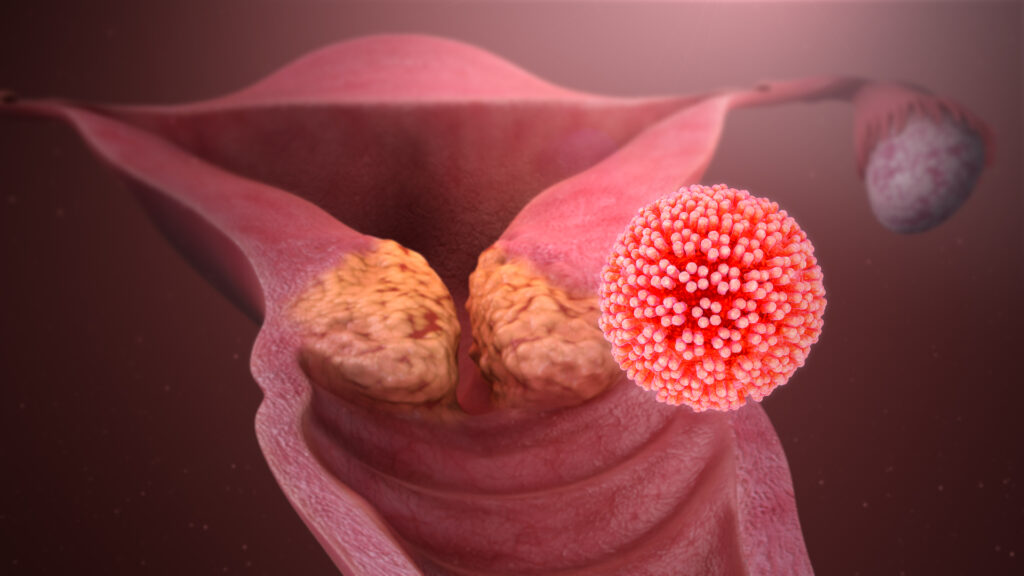Routine HPV Vaccination of School Girls in Scotland has Dramatically Reduced Cervical Cancer

HPV is the most common virus that infects the reproductive tract and Cervical cancer is by far the most common disease caused by it.
By Neucrad Health India news desk, April 22, 2019
A great observation was found in Scotlant. Routine Human Papilloma Virus (HPV) vaccination of school girls in Scotland has dramatically reduced cervical cancer. In general, HPV vaccine which protects from a range of sexually transmitted infections. Well, HPV is a ubiquitous virus, and according to the CDC, it is affecting approximately 80 million individuals all across the United States. Every year the virus infects about 14 million new cases including teens and young adults. In India, about 132000 individuals develop cervical cancer resulting in the death of 74000 patients annually.
The HPV vaccines are currently available in most of the countries which when administered in the right time can prevent the occurrence of HPV infection in future.
Usually, HPV infections go away on their own within two years. Sometimes, it can last longer and cause cancer in the cervix, vagina, and vulva in women, penis in men; base of the tongue and tonsils, back of the throat, and anus of both men and women. Though CDC reports approximately 33700 new HPV related cancer every year, the surprising fact is, about 31200 of these cases can be avoided from developing through immunization.
How did Scotland introduce routine HPV vaccination among school children?
In 2008, Scotland introduced a National HPV Vaccination Programme for all school going girls aged 12 to 13. There was also a catch-up programme for girls up to 18 years. Tim Palmer and his team of the University of Edinburgh took this opportunity to study the impact of immunisation on the development of abnormal cancerous cells and cervical lesions or cervical intraepithelial neoplasia (CIN) from 2008 to 2016. Studies revealed that the routine vaccination of school girls led to a dramatic fall in cervical diseases. There was a drop of approximately 90 per cent of pre-cancerous cells formation in vaccinated girls. Scientists believe that the programme has “exceeded expectations”. The vaccine is highly effective, and it can reduce cervical cancer in adults measurably.
What is the Human Papilloma Virus (HPV)?
HPV is a widespread virus causing sexually transmitted infection in human beings. There are about 100 types of this virus, out of which around 30 types can affect the genital organs of both men and women like cervix, vulva, vagina, scrotum, penis, walls or rectum, and anus. 14 strains of the HPV virus are considered ‘high risk’ and can even lead to cervical cancer. Research reveals that most sexually active men and women contract HPV virus at some stages in their life. It usually spread during vaginal, oral, and anal sex. In addition to cancer, it can also cause genital warts in human beings. Though there is no cure for HPV infection, vaccination in early teens can prevent its occurrence.
How can HPV cause cervical cancer?
Few strains of HPV can cause cervical dysplasia which in its advanced stage can lead to cervical cancer. However, we should also remember that every woman having HPV infection would not develop cervical cancer. Moreover, there is a pap test which can detect pre-cancerous changes in the cervix of women and caution them about the chances of malignancy in future. In most cases, cervical cancer is preventable or cured when detected in the pre-cancerous stage.
Who are at a higher risk of developing HPV infection ?
There are some factors which increase the chances of developing HPV infection. Individuals, having multiple sexual partners, having a partner who has several intimate relationships, having a weakened immune system due to certain diseases like HIV infection, and having damaged skin or warts on the surface have a higher chance of developing HPV infection.
At what age, a child should get HPV vaccine?
The ideal age for HPV vaccination is 11 to 12 years. Individuals should get two doses of the vaccine at an interval of 6 to 12 months. If any adolescent receives the second shot before five months, then doctors advise them a third dose to prevent HPV infection. Individuals above 14 years also require three doses of HPV vaccine.
Image: Illustration purpose, By Manu5, CC





